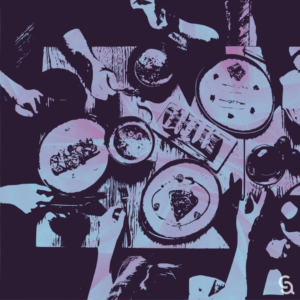 I’ve been thinking a lot about the spate of book bans occurring across the country recently, school boards and state legislatures and governors deciding that some books are too dangerous for young people, because they narrate stories about queer protagonists, because they center the lives of Black people, because they aren’t solely populated with white evangelical ideals.
I’ve been thinking a lot about the spate of book bans occurring across the country recently, school boards and state legislatures and governors deciding that some books are too dangerous for young people, because they narrate stories about queer protagonists, because they center the lives of Black people, because they aren’t solely populated with white evangelical ideals.
Maybe I’ve been thinking about these book bans because I’m an English professor who understands how important free access to reading material is: how reading can improve our critical thinking skills, but also make us more empathetic to those whose lives are different from our own. Advocating for books has been part of my vocation for several decades now, and I’m appalled to think that young people might not get a chance to read books that were literally life-changing for me.
In January 2023, the Washington Post reported that teachers in two Florida districts were instructed to remove their classroom libraries because of a state house bill that demanded all books should be free of pornography, age-appropriate, and “suited to student needs.” Given some resistance even to books merely because they feature a Black protagonist, district leaders asked teachers to vet every title and make accessible only those that clearly met the bill’s criteria; teachers complied, fearing costly fines for not obliging, even though the rules for what meets “student needs” remain undefined.
Images of elementary classrooms with empty bookshelves has become a startling symbol for the cultural moment we’re in, when books are considered too dangerous and schoolchildren are being used to score political points about Critical Race Theory and presumably “woke” teachers. Accusations of educators indoctrinating children have added fuel to already inflamed communities, and books that at one time seemed acceptable, like Harper Lee’s To Kill a Mockingbird, are now considered problematic, because the book’s anti-racist message is seen as another effort to teach CRT.
Such book-banning images also brought to mind the recently-released movie Women Talking, directed by Sarah Polley, based on Miriam Toews’s 2018 novel of the same name. The film offers a prescient warning: withholding knowledge from people and keeping them repressed might work for a moment, but once they begin talking, their shared experience and consciousness will reap the whirlwind.
The novel and subsequent movie are inspired by real-life events that took place in a conservative Mennonite colony located near Santa Cruz, Bolivia. In 2009, eight men were convicted of raping over 100 women, using animal anesthesia to drug them as they slept, then attacking them in their beds. The women awoke in the mornings to signs of abuse, but were told by men—including the community’s leaders—that the rapes were from ghosts, or the devil, or were a figment of the women’s imagination, concocted to garner attention.
Women Talking imagines what happens while the colony’s men are in Santa Cruz, trying to post bail for the accused. The women, illiterate and isolated, must decide what to do: stay in the colony, forgive or fight the men, or leave for a world they’ve never encountered and for which they have few tools to navigate. Their conversation is searing and heartbreaking, informed by their considerable knowledge of the Bible (or, rather, what the colony’s men have told them about the Bible), and reflective of their faithful adherence to Anabaptist doctrine distilled through the colony’s men and embodied in hymns they know by heart.
Of course, Women Talking is not about escalating book bans in the United States, even though these women have quite literally been banned from reading books. But the film speaks to our culture moment nonetheless, reflecting the unintended consequences of a totalitarian impulse to keep children docile, uneducated, and isolated from the world because of a distorted understanding of the Bible. Or because the world seems so threatening. Or because doing so provides a chimera of security and certainty.
Having been a parent for 20 years now, I definitely know the longing for certainty, the desperate desire to have my sons arrive safely into settled adulthood embracing the values I spent their lifetimes teaching them. Despite this longing, I also recognize that this world offers no assurances. A robust education, including access to challenging books about people different from them, equipped them for life’s complexities in ways that keeping them cloistered, illiterate, and submissive could not.
In my research of Gen Z for a forthcoming book, Finding Our Way Forward: When the Children We Love Become Adults, I interviewed a number of young adults who grew up in conservative white evangelical homes, and whose parents tried to protect them by prohibiting books and movies deemed too “secular.” The parents’ protective efforts often made young people naïve and ill-prepared for adulthood, when (even at a Christian college) they would encounter diverse people and challenging ideas for which they had no appropriate frame of reference.
Parental control only lasted for a short season, because once young people left their cloistered homes and met others who aren’t like them, they talked, and in those conversations, they discovered a world far more vast and complex than the one for which their parents prepared them. Social media provided another conduit for conversation, helping young people talk to people across the globe and providing a connection to ideas from which prohibitive book bans would not protect them.
Despite its many ills, the connectivity of social media has made members of Gen Z far more tolerant than older generations. In 2020, the Pew Research Center found that young people believe racial, ethnic, gender, and sexual diversity is good for our country, and are measurably more interested in equity, inclusion, and justice than their parents. They’ve talked, after all, and have embraced an expansive universe where different people all reflect the Imago Dei.
The end of Women Talking provides a powerful affirmation that oppression will not win and that, within the supportive context of a community in search of justice, good prevails. The women, having repeated Philippians 4:8 as a mantra, reach a new understanding of “whatever is true, whatever is noble, whatever is right, whatever is pure, whatever is lovely,” and know that “thinking about such things” means acting in ways different from what the men in their colony taught them.
Some Christians use this same Bible verse to advocate for book bans, arguing that the books their children read are impure and unlovely, and that they make white students uncomfortable. As an English professor who has read many of the books now being challenged across the United States, I would argue that Philippians 4:8 applies, because sometimes rightness requires justice, and beauty and truth are not necessarily synonymous with feeling comfort and at ease. In fact, sometimes challenging books will make us uncomfortable, will ask us to recalibrate all we’ve known of the world and our place in it. Such books remind us that God resides in hard places, and that God calls us to know and love people who are nothing like us.
Children growing up as political pawns in our country’s cultural wars will not stay young forever. Once they reach adulthood, they will face a choice similar to that offered the women in Polley’s award-winning film: Will they forgive the adults who have kept their lives small? Or will they want to leave the spaces that robbed them of their agency, trading security for an opportunity to live abundantly and with autonomy?
Book bans will make this decision harder for some young people. As the movie suggests, they might well choose a more difficult road, but one they are entirely willing to take for want of freedom.
 Melanie Springer is a Professor of Language and Literature at George Fox University, Newberg, Ore. She is the author or co-author of six books including most recently Finding Our Way Forward: When The Children We Love Become Adults. Her essays and reviews have appeared in The Nation, Christian Feminism Today, The Chronicle of Higher Education, and Ms. Magazine, among other places.
Melanie Springer is a Professor of Language and Literature at George Fox University, Newberg, Ore. She is the author or co-author of six books including most recently Finding Our Way Forward: When The Children We Love Become Adults. Her essays and reviews have appeared in The Nation, Christian Feminism Today, The Chronicle of Higher Education, and Ms. Magazine, among other places.


